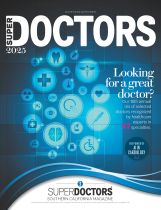Baylor College of Medicine (BCM)
By: Dana Benson
December 19, 2016
The holidays can be challenging for families of children with autism spectrum disorder. Keys to success during the season are advance communication and planning, including making use of modern media, according to an expert at Baylor College of Medicine and Texas Children’s Hospital.
“The holidays often mean family gatherings, new situations, music, noise and lights, and this can be overwhelming for anyone, especially a child with autism spectrum disorder,” said Dr. Jack Dempsey, assistant professor of pediatrics at Baylor College of Medicine and psychologist at Texas Children’s Autism Center. “The goal for parents should be to help their child have fun but to keep them from reaching an emotional extreme, such as feeling overexcited or anxious.”
Children with autism spectrum disorder often have difficulty expressing themselves verbally, and when their emotions run high, they find other ways to express themselves. This could include crying, yelling or lashing out. Parents can prepare by taking a two-step communication approach – first, communication with family and loved ones, and then communication with their child.
For example, for families of a child with autism who will be visiting another family member’s home during the holidays, it’s important to know what the holiday festivities will entail.
“Will there be a big holiday dinner? Does a certain uncle carve the turkey? Will there be caroling? When are the presents opened? These are all important questions to ask,” Dempsey said. “Then, parents can start talking to their child and preparing him or her for the visit.”
Making use of visual aids to help prepare is a great idea, Dempsey said, and it plays to the strengths of many children with autism, who often are more visually than verbally oriented. Show them photos of where they’ll be spending the day, or videos of people caroling and opening gifts. This can help take away the stress and anxiety that comes with novel surroundings and situations.
“Almost all children love watching YouTube videos or swiping through photos on a phone, especially children with autism. Make it a nightly event leading up to the family gathering,” he suggested. “This can build anticipation and turn something feared into something desired.”
When the holiday gathering comes around, be ready with toys and snacks that can be used to distract or transition the child away from a situation that may be triggering stress or anxiety. Parents can take their child into another room, offer a favorite treat or a toy to help return emotions to a neutral place, and then return to the rest of the family. Here’s where using a phone is probably not a good idea, he said, because the child may very well become immersed in it and not want to engage further with others.
“Have a ‘bag of tricks’ ready – things your child likes but that won’t be a problem transitioning away from,” he said.
Opening presents in particular can be a stressful event. “The whole process of opening presents – it’s just a frenzy of activity. It’s intense. Some children may be delighted by it, others overwhelmed. If it is likely to be overwhelming, transition to another room with a treat or a toy for about 10 minutes until the activity calms down. Or, if parents see that there is a special cousin or other relative their child really likes, ask that person to help open gifts, and this can be a calming influence.”
Other important tips include:
· If traveling, consider leaving at night. Your child will sleep, reducing the need for rest stops that can be disruptive.
· Take lots of photos and video at the holiday. Then, show them to you child the following year to get ready for another family gathering.
· Present a calm front even if you’re anxious on the inside. Children pick up on your emotions.
· Hit up the dollar store for toys to use to transition your child out of stressful situations. That way, you’ll have a variety of things without the expense.
· Consider practicing scenarios you may encounter during the holidays. For example, practice the big holiday meal with a mock dinner, complete with place settings, or practice opening gifts.
· Don’t try to hide your child from extended family. Your family should know the challenges you face.
“Parents can be fearful of new situations for their child, but it’s important to try new things and to try to be social. Parents know their child better than anyone, so they should always keep in mind the worst that could happen – the most extreme response by their child – and prepare for that in advance.”
For adults or children with a diagnosis of autism, Baylor College of Medicine and Texas Children’s Hospital are part of a new research study called SPARK, sponsored by the Simons Foundation Autism Research Initiative. SPARK will provide researchers with medical and genetic information from tens of thousands of individuals and families affected by autism, which will power important new research that aims to advance the understanding of autism and provide meaningful information and resources to participants. To register, contact Andrea Simon at [email protected] or (832) 824-3624, or visit the SPARK website.

